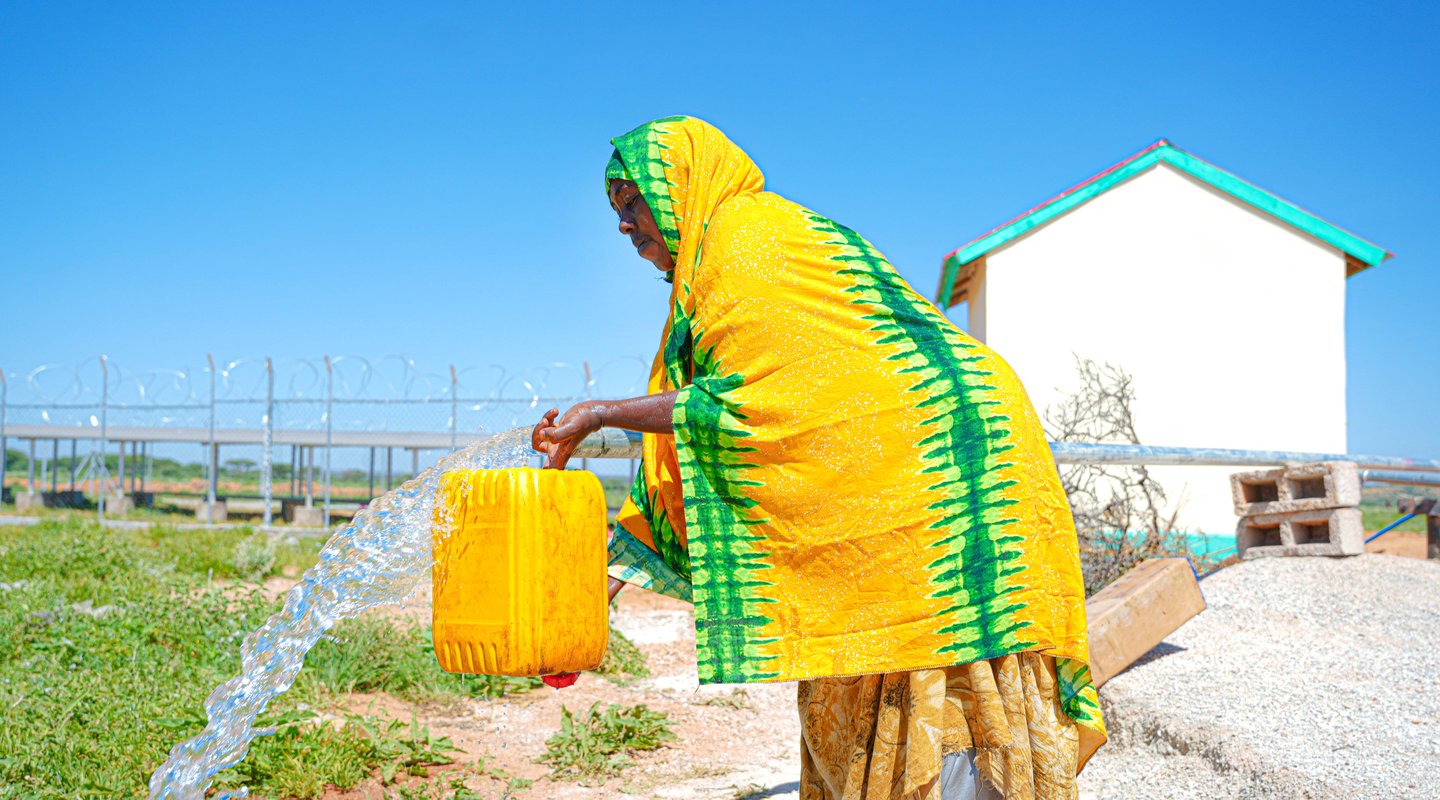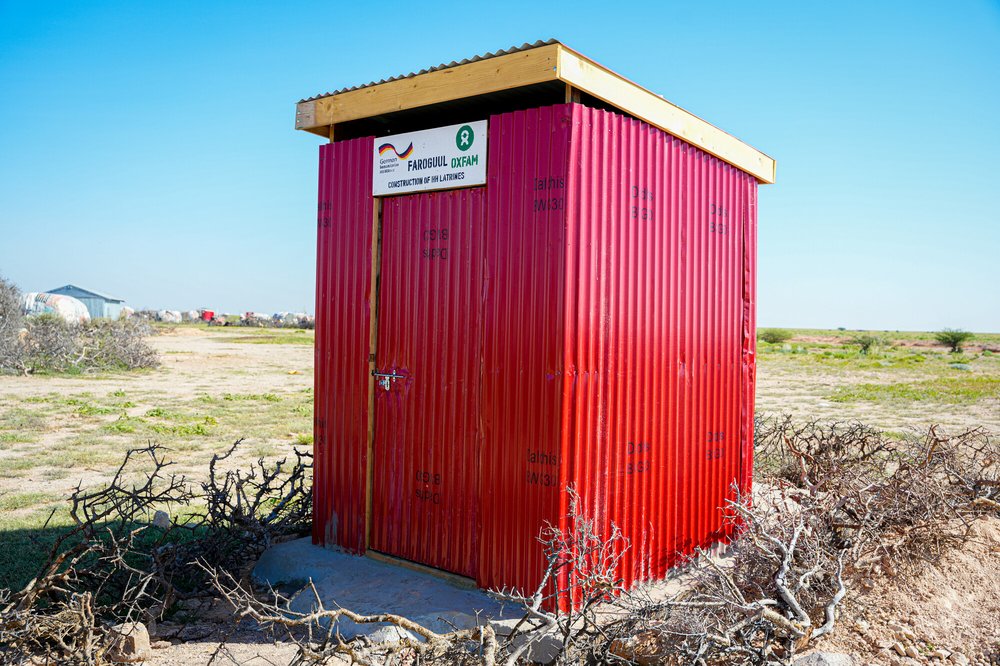
Deka getting water from a newly built water point in Somaliland. Image: Ahmed Osman/Oxfam
In Somaliland's Sool region, climate change has disrupted the water supply and the ways farmers make a living. It has altered traditional practices and cultural dynamics.
Somali communities are responding to drought and conflicts. With Oxfam, they are testing innovative ways of restoring community infrastructures.
See the project in action
The project has included:
- Installing solar power.
- Installing water, sanitation, and hygiene facilities.
- Developing water systems for humans and animals.
- Community-managed greenhouses to better prepare for, respond to, and adapt to the climate crisis.
Sustainable Agriculture
Abdilahi Shire, a farmer from Sanaag region in Somaliland looking at the produce from the farm, he is one of the program participant of Oxfam supported project on sustainable agriculture. Ahmed Osman/Oxfam
During the drought, most of our herds survived because they ate animal feed from our farm. They became healthy and provided milk. Even the camels started consuming the animal feed.”
Abdilahi Shire
“My family didn't have to migrate, and my children were able to attend school because we had a farm that provided food for both us and our animals. We experienced rain in two different seasons, and since the seed distribution, I have harvested five bags of grain. Now, if another drought were to occur, it wouldn't impact me or my family, as we have stored food and acquired the knowledge to survive in harsh times.”
Abdilahi Shire
Hygiene Facilities
Ahmed Osman/Oxfam

Latrine that was constructed under GFFO project.
In parts of Somaliland, reaching the nearest toilet can be a daily ordeal.
Women and girls face long distances without streetlights.
Climate extremes are pushing millions into poverty adding to the problem.
Here, solar-powered street lights were installed to make it safer at night.
The project also constructed or fixed six boreholes (drilled wells). These included two solarised ones. 60 emergency household toilets were put up in four villages.
“As women, we had many problems before the toilets were built. The field was far from the village, unsafe, and we were frequently afraid of being abused when going out. Our lives have now been transformed now that these latrines are constructed. The rate of rape cases dropped and got some privacy—which was essential to us as women. The latrines became a solution to all the challenges that we had previously faced.”
Kowsar Hussein